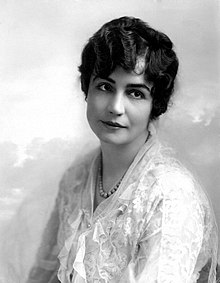Buffalo Dreams Fantastic Film Festival 2017 Honoring Female Filmmakers with Lois Weber Award
"In 2016, the annual event successfully incorporated the Buffalo Dreams Family Film Festival and launched its
Young Student Filmmaker Award. For its 2017 edition, Buffalo Dreams introduces the Lois Weber Award, named after the first female filmmaker in the U.S. Weber directed 135 films, wrote 114, and acted in 100. She was the first female filmmaker to own a production studio in this country, and is credited with creating the split screen technique and shooting directing the first sound film. The Lois Weber Award is designed to spotlight contemporary women in film."
SUBMISSIONS OPEN NOW: https://filmfreeway.com/festival/BuffaloDreamsFantasticFilmFestival
BUFFALO, N.Y. - Nov. 16, 2016 - Building on the tremendous success of this year's event, Buffalo Dreams Fantastic Film Festival is calling for submissions for its 2017 season, which will again run 10 days: Friday, November 3rd - Thursday, November 9th at the Dipson Theaters Eastern Hills Cinema, and Friday, November 10th - Sunday, November 12th at the Screening Room Cinema Cafe. In 2016, Buffalo Dreams received a record 350 submissions:
Lois Weber (June 13, 1879 – November 13, 1939) was an American silent film actress, screenwriter, producer, and director, who is considered "the most important female director the American film industry has known",[1] and "one of the most important and prolific film directors in the era of silent films".[2][3] Film historian Anthony Slide asserts that: "Along with D.W. Griffith, Lois Weber was the American cinema's first genuine auteur, a filmmaker involved in all aspects of production and one who utilized the motion picture to put across her own ideas and philosophies."[4]
Weber produced an oeuvre comparable to Griffith in both quantity and quality,[5] and brought to the screen her concerns for humanity and social justice in an estimated 200 to 400 films,[2][6] of which as few as twenty have been preserved,[7][8] and has been credited by IMDb with directing 135 films, writing 114, and acting in 100.[9] Weber was "one of the first directors to come to the attention of the censors in Hollywood's early years".[10]













Comments